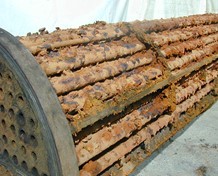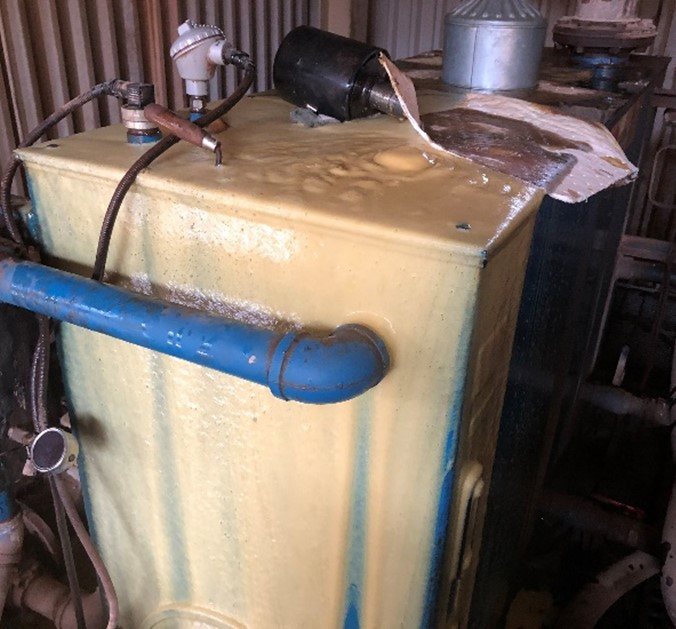Water can find its way into lube systems in numerous ways. Although immediate failure may not occur, the effects of water contamination will eventually lead to costly damage to equipment. Therefore, it is a condition that should be taken seriously and monitored for regularly, as the oil truly is the life blood of machinery such as grinding mills and crushers.


The main effects of water contamination in oil:
- Rust and corrosion: water combines with acids in oil and corrodes ferrous and non-ferrous metals. Rust particles are abrasive and therefore shorten the life of various mechanical components.
- Water compromises the lubricant film strength, by slowly breaking down the oil and depleting it of its key additives. As a result, metal to metal contact and contact fatigue will eventually occur.
Signs of water contamination in oil:
Some of the common signs of presence of oil in water are:
- Significant condensation on the inside surfaces of access hatches to various reservoirs.
- Visible corrosion on system components.
- Milky appearance of oil.
How to keep the oil dry:
Here are some key preventative measures to keep water out of oil in lubrication systems:
- Prevent or minimize condensation by installing desiccant air breathers on vents and monitor their condition regularly.
- Periodically drain water from low points of lubrication system.
- Do not spray water directly on seals and breathers when washing down equipment. As a rule of thumb, keep water off seals as much as possible.
- Monitor the condition of heat exchangers and the quality of the cooling water, as this is where oil and water are susceptible to mix with each other in case of a failure due to corrosion.
- Use quality seals, inspect them regularly and replace as soon as possible when worn out or damaged.
The Bottom Line
It is of the highest importance that preventative maintenance routines of equipment include check points specific to the detection of water in oil. If neglected, water will slowly lead to costly damage and downtime.
